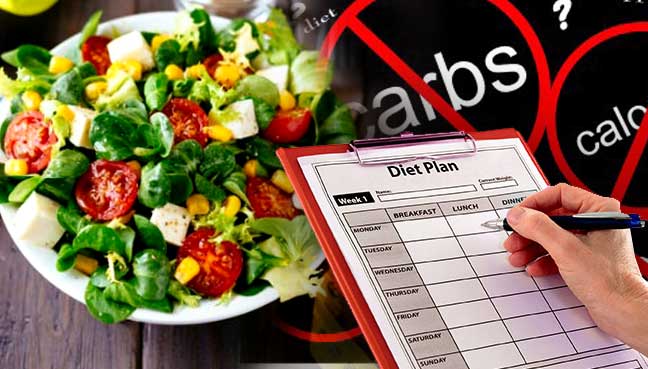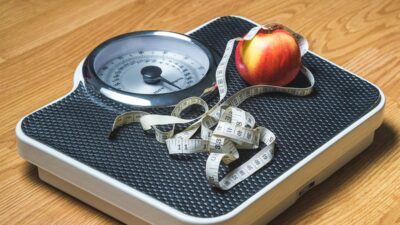A calorie deficit meal plan is one of the most effective ways to lose weight. By consuming fewer calories than your body burns, you create a deficit that forces your body to use stored fat for energy. If you’re looking for a structured approach to weight loss, a well-balanced meal plan can help you stay on track while ensuring proper nutrition.
What is a Calorie Deficit?
A calorie deficit occurs when you consume fewer calories than your body needs to maintain its current weight. For example, if your body requires 2,000 calories per day and you consume 1,500, you create a deficit of 500 calories. This can lead to a gradual and sustainable weight loss of about one pound per week.
How to Create a Calorie Deficit Meal Plan
To develop an effective calorie deficit meal plan, consider the following steps:
- Determine Your Caloric Needs: Use a calorie calculator to find your maintenance calories and subtract 500-750 calories for weight loss.
- Prioritize Protein: Foods like chicken breast, tofu, eggs, and fish help maintain muscle mass and keep you full longer.
- Include Fiber-Rich Foods: Vegetables, legumes, and whole grains improve digestion and curb hunger.
- Healthy Fats are Essential: Avocados, nuts, and olive oil provide satiety and essential nutrients.
- Stay Hydrated: Drinking enough water supports metabolism and reduces unnecessary snacking.
Sample 7-Day Calorie Deficit Meal Plan
Day 1
- Breakfast: Scrambled eggs with spinach and whole wheat toast
- Lunch: Grilled chicken salad with balsamic dressing
- Dinner: Baked salmon with quinoa and roasted Brussels sprouts
- Snack: Greek yogurt with almonds
Day 2
- Breakfast: Oatmeal with chia seeds and berries
- Lunch: Turkey and avocado wrap on whole wheat tortilla
- Dinner: Stir-fried tofu with brown rice and steamed broccoli
- Snack: Carrot sticks with hummus
Day 3
- Breakfast: Cottage cheese with flaxseeds and apple slices
- Lunch: Quinoa bowl with black beans, corn, and grilled shrimp
- Dinner: Lean beef stir-fry with bell peppers and zucchini
- Snack: Handful of walnuts
Day 4
- Breakfast: Protein smoothie with banana, spinach, and almond milk
- Lunch: Lentil soup with whole grain crackers
- Dinner: Baked chicken breast with mashed sweet potatoes
- Snack: Hard-boiled eggs
Day 5
- Breakfast: Scrambled tofu with whole wheat toast
- Lunch: Grilled salmon with mixed greens and vinaigrette
- Dinner: Turkey chili with kidney beans and tomatoes
- Snack: Low-fat cottage cheese with blueberries
Day 6
- Breakfast: Whole wheat pancakes with peanut butter
- Lunch: Chicken and vegetable stir-fry with brown rice
- Dinner: Baked cod with roasted vegetables
- Snack: Almonds and dark chocolate (in moderation)
Day 7
- Breakfast: Greek yogurt with granola and banana slices
- Lunch: Chickpea and cucumber salad with feta cheese
- Dinner: Grilled turkey burger with lettuce wrap
- Snack: Handful of sunflower seeds
Additional Tips for a Successful Calorie Deficit Diet
- Meal Prep in Advance: Prepping your meals ahead of time prevents impulsive, high-calorie food choices.
- Track Your Calories: Use apps like MyFitnessPal to monitor your intake and stay consistent.
- Exercise Regularly: Combine your calorie deficit meal plan with strength training and cardio for optimal results.
- Mindful Eating: Avoid distractions while eating and chew your food thoroughly to prevent overeating.
- Get Enough Sleep: Poor sleep can lead to increased hunger and cravings, making weight loss more challenging.
Best Foods for a Calorie Deficit Meal Plan
Including nutrient-dense foods helps maintain satiety and ensures you get essential vitamins and minerals:
- Protein Sources: Chicken, eggs, Greek yogurt, lentils, tofu, fish
- Healthy Carbs: Brown rice, quinoa, oats, whole wheat bread, sweet potatoes
- Vegetables: Broccoli, spinach, kale, bell peppers, cauliflower
- Healthy Fats: Avocado, nuts, seeds, olive oil, fatty fish
- Fruits: Berries, apples, bananas, oranges
Final Thoughts
A well-structured calorie deficit meal plan is key to sustainable weight loss. By making mindful food choices and staying consistent, you can achieve your fitness goals without feeling deprived. Focus on nutrient-rich meals, stay hydrated, and incorporate physical activity to maximize your results.
Start implementing this plan today and take a step towards a healthier lifestyle!
learn more: eatingwell.com




